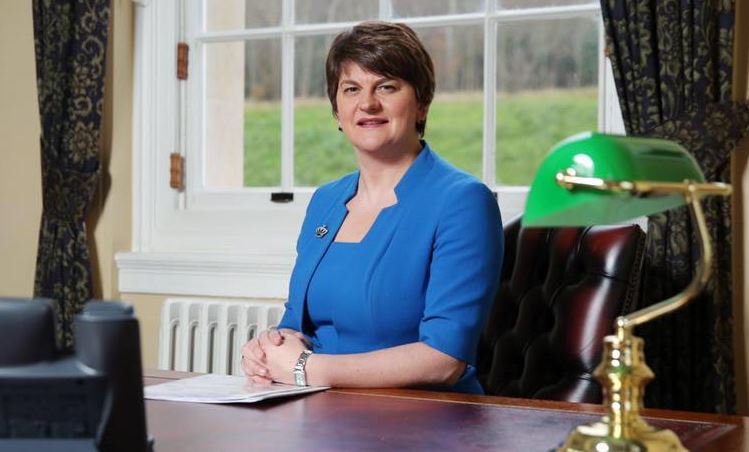Arlene Foster has stuck to her stance that marriage is between a man and woman
The DUP leader said people are able to love whoever they want but marriage is only between opposite sexes
By Steve Brown

Arlene Foster has stood by her beliefs that marriage is only between a man and a woman.
The Democratic Unionist Party (DUP) in Northern Ireland has been considered ‘kingmakers’ for the Conservatives after Theresa May’s party lost its majority in the last election.
The two parties entered a formal agreement to govern, as the support of the DUP’s 10 MPs gave May the majority she needs to pass legislation.
Now while appearing at the Tory conference in Birmingham yesterday (October 2), Foster was met by openly gay Guardian and Attitude columnist Owen Jones.
When asked why LGBT people shouldn’t be able to get married in Northern Ireland, Foster said: “Well they do have the right to express their love. Nobody is talking about anybody not being able to love another person.
“Of course, they can. I believe that marriage is between a man and woman.”
.@OwenJones84 confronts DUP leader Arlene Foster on same-sex marriage pic.twitter.com/75HcOIS58S
— The Guardian (@guardian) October 2, 2018
Jones then went on to say that marriage equality was inevitably going to happen in Northern Ireland and she should go down in history as being the politician who gave equal rights to the LGBT community.
But Foster replied: “I think you should be allowed to have a belief, otherwise we would live in a very intolerant world, wouldn’t we?”
The DUP leader has claimed that accusations of homophobia within her party are “complete and utter nonsense” in an ITV interview last year.
However, homophobia is entrenched in the DUP’s history. The party was founded by Ian Paisley in the early 1970s.
In 1977 Paisley launched the ‘Save Ulster from Sodomy’ campaign, which sought to prevent the decriminalisation of homosexuality in Northern Ireland. Paisley died in 2014, but these views are still widely held in the party.
The DUP has blocked equal marriage legislation multiple times in the Northern Ireland assembly – most recently in November 2015, when a majority of the Assembly actually voted to legalise same-sex marriage, only for the DUP to effectively veto the measure under the terms of Stormont’s power-sharing agreement.
